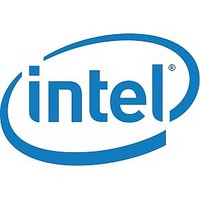TG80960JT100 Intel, TG80960JT100 Datasheet - Page 36

TG80960JT100
Manufacturer Part Number
TG80960JT100
Description
IC MPU I960JT 3V 100MHZ 132-QFP
Manufacturer
Intel
Datasheet
1.TG80960JT100.pdf
(86 pages)
Specifications of TG80960JT100
Rohs Status
RoHS non-compliant
Processor Type
i960
Features
JT suffix, 32-Bit, 16k Cache, Extended Temp
Speed
100MHz
Voltage
3V
Mounting Type
Surface Mount
Package / Case
132-QFP
Other names
824389
Available stocks
Company
Part Number
Manufacturer
Quantity
Price
Company:
Part Number:
TG80960JT100
Manufacturer:
PHI
Quantity:
74 910
Part Number:
TG80960JT100
Manufacturer:
INTEL
Quantity:
20 000
80960JA/JF/JD/JS/JC/JT 3.3 V Embedded 32-Bit Microprocessor
4.3
4.4
36
Figure 8. VCC5 Current-Limiting Resistor
Note: Pins identified as NC must not be connected in the system.
Connection Recommendations
For clean on-chip power distribution, V
units. Power and ground connections must be made to all 80960Jx power and ground pins. On the
circuit board, every V
a ground plane. Place liberal decoupling capacitance near the 80960Jx, since the processor may
cause transient power surges.
The 80960JS/JC/JT processors are produced on Intel’s advanced CMOS process. Proper bulk
decoupling must be used to prevent device damage during initial power up and during transitions
from low power mode to normal processor operation. Power supply behavior during these
transitions may cause the power supply to exceed the maximum V
device damage.
Pay special attention to the Test Reset (TRST#) pin. It is essential that the JTAG Boundary Scan
Test Access Port (TAP) controller initializes to a known state whether it may be used or not. When
the JTAG Boundary Scan function may be used, connect a pull-down resistor between the TRST#
pin and V
testing), connect the TRST# pin to V
Do not connect the TDI, TDO, and TCK pins when the TAP Controller may not be used.
VCC5 Pin Requirements (VDIFF)
In 3.3 V only systems where the 80960Jx input pins are driven from 3.3 V logic, connect the VCC5
pin directly to the 3.3 V V
In mixed voltage systems where the processor is powered by 3.3 V and interfaces with 5 V
components, VCC5 must be connected to 5 V. This allows proper 5 V tolerant buffer operation, and
prevents damage to the input pins. The voltage differential between the 80960Jx VCC5 pin and its
3.3 V V
pin may exceed the value at which the processor is damaged. Instances when the voltage may
exceed 2.25 V is during power up or power down, where one source reaches its level faster than the
other, briefly causing an excess voltage differential. Another instance is during steady-state
operation, where the differential voltage of the regulator (provided a regulator is used) cannot be
maintained within 2.25 V. Two methods are possible to prevent this from happening:
•
•
Use a regulator that is designed to prevent the voltage differential from exceeding 2.25 V.
or:
As shown in
through VCC5.
+5 V (±0.25 V)
CC
SS
pins must not exceed 2.25 V. When this requirement is not met, current flow through the
. When the JTAG Boundary Scan function may not be used (even for board-level
Figure
(±5%, 0.5 W)
CC
100
8, place a 100
pin should connect to a power plane and every V
CC
plane.
VCC5 Pin
SS
.
CC
resistor in series with the VCC5 pin to limit the current
and V
SS
pins separately feed the device’s functional
CC
specification and may cause
SS
pin should connect to
Datasheet












